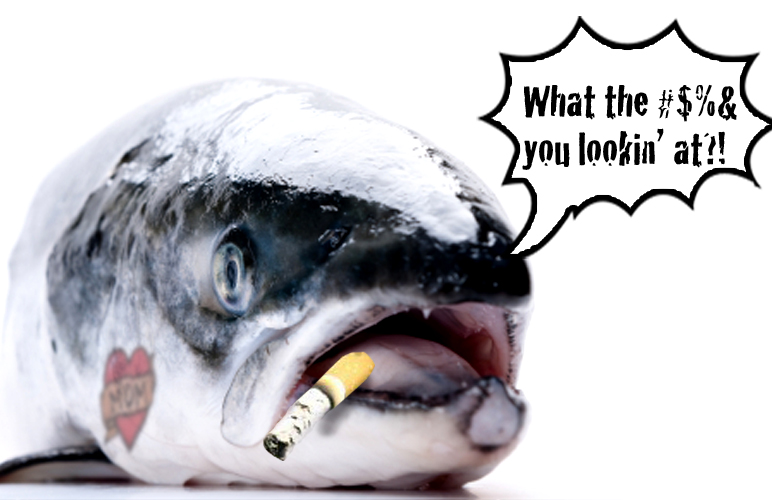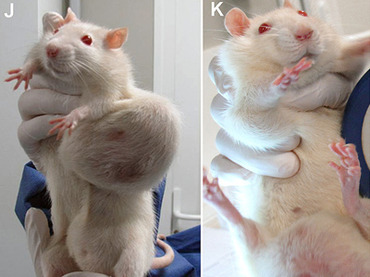Monsatan’s in the News Again
This time attacking small farmers. You know we Doowans tried to stop taking about these jurks. GMO Armageddon says it all. We all know they are Satan’s spawn. And all they bring is death and destruction. We have written over 25 articles concerning GMOZ. And quit frankly we are concerned that our blog site may get infected with GMOZ DNA genes. Thus, we might become sterile or even worse. However the People want to know what they are up to so here we go again.
We found some information from Monsatan’s website. Because we Doowans LOVE to get a perspective on Parallel Realities and the fairy land that Monsatan lives in. There rhetoric is entertaining when one needs a good laugh, but it also give us insight into their make-believe world they want us to believe, they are attempting to save. Of course if your up on Monsatan’s in the News then you know this couldn’t be farther from the truth.
Monsatan’s in the News, Just more rhetoric from the mouth of Satan
Here’s what we found. Get your fairy dust ready because you’re going to need it!
They call it Field to Market, Here’s a list of who’s on Monsatan’s Field to Market Team:
American Farm Bureau Federation
American Soybean Association
BASF
Bayer CropScience
Bunge
Cargill
National Alfalfa & Forage Alliance
CHS Inc.
Conservation Technology Information Center
Cotton Incorporated
CropLife America
CropLife International
DuPont
Environmental Defense Fund
Fleishman Hillard
General Mills
Grocery Manufacturers of America
Illinois Soybean Association
Indiana Soybean Alliance
Innovation Center for US Dairy
International Plant Nutrition Institute
John Deere
Kellogg Company
Land O’Lakes
Manomet Center for Conservation Sciences
Mars, Incorporated
Monsanto Company
National Alfalfa & Forage Alliance
National Association of Conservation Districts
National Association of Wheat Growers
National Corn Growers Association
National Cotton Council of America
National Potato Council
Natural Resources Conservation Service (NRCS)
Penton Media
The Coca-Cola Company
The Fertilizer Institute
The Nature Conservancy
Syngenta Corporation
United Soybean Board
University of Arkansas Division of Agriculture
University of Wisconsin-Madison College of Agricultural and Life Sciences
USA Rice Federation
Walmart
World Resources Institute
World Wildlife Fund – US
We would suggest that these companies not be supported with your hard-earned money. But hey, it’s your money!
Than they say there’s THE NEED. We need this like we need a hole in our heads. Ooops, Better not give them any Ideas.
“With the world population estimated to hit 9 billion people by 2050 we have to produce more food in the next fifty years than we did in the last 10,000 years combined, and we need to do it with less land, water and energy.”
Sprinkle some fairy dust here, because if they have their way their planning 80-90% reduction in the world’s population by 2050. Their GMOZ corn is proof of that. But hey, it’s their fairy land. We are just visiting.
Than they Believe SUSTAINABLE AGRICULTURE DEFINED, Like they own a dictionary.
“Field to Market defines agricultural sustainability as meeting the needs of the present while:
improving the ability to feed future generations by increasing agricultural productivity while decreasing environmental impact, improving human health through access to safe, nutritious food improving social and economic well-being of rural communities.” Yea, right after Monsatan takes them over. More on that later in this article.
We need more fairy dust here. I can stop laughing, Sustainable, that’s a good one. Of course they never mention the need to increase the spraying of roundup on their crops. Well because it’s all make-believe to them. And more study is needed. Just ask this Farmer! Monsatan believes that sustainable means having to order their seeds, their chemicals. At increased prices is sustainable to the farmers. Plus, to eat these GMOZ poisons is helping us, and their chemicals are not poisoning the land, the water, and us. This Parallel reality stuff is kinda interesting, don’t you think. We need another dose of fairy dust. We think they should quit using such big words, like Sustainable and Agriculture, because they haven’t a clue about their meanings
In other matters, Monsatan also announced that at its annual meeting held today, share owners elected four members of its Board of Directors to new three-year terms: Oh lucky them, they just sold their souls. More fairy dust?
David L. Chicoine, Ph.D.
Arthur H. Harper
Gwendolyn S. King
Jon R. Moeller
Four more people have made the dimensional shift into fairy land, to late to save them now. Their goners. Save your fairy dust it won’t help them. We can use it to save some other people who need our help.
ST. LOUIS, Jan. 31, 2013 /PRNewswire/ — Monsanto Company (NYSE: MON) announced that its Board of Directors, at a regularly scheduled meeting held today, declared a quarterly dividend on its common stock of 37.5 cents per share. The dividend is payable on April 26, 2013, to share owners of record on April 5, 2013.
Now you know the price of a soul 37.5 cents per share. Don’t they call these penny stocks? Yet, Monsatan has money to acquire new lands.
Monsanto also signs research collaboration agreement with and makes equity investment in Synthetic Genomics Inc., co-founding company of Agradis, Inc.
Jan 30, 2013
ST. LOUIS, Jan. 30, 2013 /PRNewswire/ — Monsanto Company today announced it has purchased select assets of Agradis, Inc. (Agradis), a privately held company focused on developing sustainable agricultural solutions. Monsanto’s purchase includes the Agradis name and its collection of microbes that can improve crop productivity. Monsanto has also acquired the company’s R&D site in La Jolla, California. Additional details were not disclosed.
Agradis was formed in 2011 by Synthetic Genomics Inc (SGI), a privately held company led by J. Craig Venter, Ph.D. Founder and CEO, dedicated to developing genomic-driven solutions to address global challenges, and Plenus, S.A. de C.V. (Plenus) a Mexico-based investing and management company headed by Alfonso Romo, which has extensive experience in a variety of business areas, including agribusiness. The assets of Agradis not purchased by Monsanto include castor and sweet sorghum breeding and genetic optimization technologies, as well as a novel product used to prevent fungal growth on fruits and vegetables. These assets will continue to be advanced by SGI and Plenus in a new company, AgraCast.
“Agradis’ collection of plant associated microbes will support Monsanto’s efforts to provide farmers with sustainable biological products to improve crop health and productivity,” said Steve Padgette, Monsanto R&D investment strategy lead. “We value the expertise and capabilities the Agradis team brings to Monsanto as we continue to build on this exciting area of research.”
Great Monsatan owns more patents on life. Good thing this is only a parallel reality because if this happens in our world. We could be in trouble. Quick more fairy dust!
Well on to the real news and the reason for this article. We mentioned that we were going to need more fairy dust to save the people who need our help. So feel free to sprinkle as needed and often, as these people are fighting for their lives and ours. There’s just never enough fairy dust when you need it.
Farmer, 75, Takes on Monsatan’s in the News
Soybean seed case hits Supreme Court this week
By Evann Gastaldo, Newser Staff
Posted Feb 18, 2013 1:52 PM CST
(Newser) – Vernon Hugh Bowman, a 75-year-old Indiana farmer, is taking on agribusiness heavyweight Monsanto in a case hitting the Supreme Court tomorrow. Monsanto says Bowman, who has been using Monsanto’s soybean seeds happily for years, is infringing its patents when he plants a second crop of soybeans each year. The breakdown, courtesy of NPR:
Bowman has to sign a standard agreement when he buys Monsanto seeds for his spring crop, stating he won’t save any of his harvest to replant the following year.
But since his second crop is riskier, he decided to use cheaper seeds for that crop. Starting in 1999, he bought soybeans from a grain elevator. Local farmers drop off their harvest there, and it’s sold as “outbound grain,” not seed.
But since most farmers use Monsanto’s Roundup Ready soybean seeds (they’re resistant to widely-used weed killer Roundup) nowadays, the beans he bought still included the Roundup Ready gene. Bowman didn’t believe Monsanto still had control over these beans; plus, he was getting a variety of different beans, not just Monsanto’s, so “I couldn’t imagine that they’d give a rat’s behind,” he explains.
But Monsanto sued, and Bowman was ordered to pay the company $84,000 for patent infringement. “He wanted to use our technology without paying for it,” says a Monsanto lawyer. Bowman appealed, and the Supreme Court agreed to hear the case.
His lawyers say patent law dictates that once you buy something covered by a patent, you own it and can use it for “ordinary pursuits of life.” But Monsanto says this “patent exhaustion” principle doesn’t mean Bowman can, effectively, make copies of Monsanto’s product. Time puts it this way: Does a patent on a living thing extend to that thing’s progeny?
The biotechnology and computer software industries are on Monsanto’s side, because “patent exhaustion” could hurt them in a similar way.
Twenty years ago it was easy to find cheap “public” seeds, but nowadays almost all seeds are patented and thus more expensive, even at small seed companies—and Bowman’s case could really shake things up.
Monsatan’s in the News some more!
Plus, Oregon farmers are watching a U.S. Supreme Court case that for the first time takes on the environmental impact of genetically engineered crops.
The case, argued last week, is between a Greenleaf, Idaho, company, Geertson Seed Farms, and the giant Monsanto Corp. It involves a variety of “Roundup Ready” alfalfa that can withstand the company’s widely sold herbicide. Crops treated with Roundup can’t be labeled organic, and growers who raise organic or even conventional crops worry about what they consider contamination.

Monsatan’s in the News
The sheep aren’t listening, their dead after eating MonSatan GMOZ Alflafa and Cotton plants
Genetically modified plants have been controversial since their introduction in 1996, and they now constitute more than 80 percent of the corn, soybeans and cotton grown in the U.S., according to an April report by the National Research Council. They’ve been hailed by some as an advance for feeding a hungry world but criticized by others as unsafe and monopolized “Frankenfood.”
Though Monsanto and others have touted both the environmental and economic benefits, some food-safety, farm and environmental groups say that not enough science was done before the genetic genie was let out of the seed bag.
In the Supreme Court case, Geertson Seed Farms, which was founded in Oregon and has grown, bagged and sold alfalfa seed since 1942, is supported by environmental groups such as the Center for Food Safety. Monsanto’s partner in the case is Forage Genetics International, which sold genetically engineered seed in Idaho, Oregon, Colorado, Wyoming and Montana. A lower court issued a nationwide injunction against the seed in 2007, stopping its sale and beginning an appeals process that led last week to the Supreme Court.
In some cases, agricultural officials established isolation zones of several miles between genetically modified crops, and conventional or organic ones. Farm owner Phil Geertson said that doesn’t work with genetically modified alfalfa, which has sprouted wild along roadsides. As pollinating bees fly from plant to plant, farmers say, genetically engineered traits can travel from field to field. At some point, “it will not be possible to grow alfalfa that is not highly contaminated with the Roundup Ready gene,” Geertson said.
Cross-fertilization is a concern because up to 60 percent of the U.S. alfalfa seed crop previously was exported, but that’s tumbled because some nations don’t allow genetically modified crops, Geertson said. “We’ve lost probably 50 to 60 percent of our market for conventional alfalfa.”
Alfalfa is an unglamorous plant used for hay and livestock forage. But it’s a big crop in Oregon. In 2009, the alfalfa hay crop covered 397,000 acres and was valued at $184 million — fifth among the state’s agricultural products after cattle, nursery crops, dairy products and wheat. Some Oregon farmers probably would raise genetically engineered alfalfa if not for the court injunction, said Carol Mallory-Smith, a Oregon State University crop professor.
Narrow issues
As often happens by the time broad public policy questions reach the appellate courts, Monsanto Co. V. Geertson Seed Farms turns on narrow procedural issues: whether a full environmental impact study should have been conducted before Roundup Ready alfalfa was released for sale.
Still, the Supreme Court’s ruling, expected in June or July, could reopen the debate.
The technology behind genetically engineered crops also has been used to grow sugar beet seeds in Oregon, alarming organic growers. Growers and environmental groups sued the U.S. Department of Agriculture over its approval of genetically engineered sugar beets. The judge ruled in March that farmers can harvest the beets this year because the economic impact of destroying the crop would be too great, but the issue remains unresolved.
Genetically modified crops are engineered to be immune to glyphosate, the chief weedkiller in Roundup, and some also produce a bacteria that is deadly to insects that otherwise would damage them.
Theoretical benefits
Roundup Ready alfalfa survives when sprayed with the herbicide, which kills weeds that compete for water and nutrients, potentially resulting in larger yields, better quality and a higher price. Genetically engineered seed costs more, but farmers theoretically benefit from lower production costs because they use smaller amounts and less harsh types of herbicides and insecticides, and till their soil less often. Some researchers say water-quality improvement may prove to the largest single benefit of genetically engineered crops.
Meanwhile, as the Supreme Court heard arguments on alfalfa last week, the National Research Council — headed by Dave Ervin, a Portland State University environmental management and economics professor — released a report saying the jury is very much out.
Genetically engineered crops offer “substantial net environmental and economic benefits” compared with conventional crops, but the benefits are not universal and may decline over time, the council said, adding that the risk may increase as the technology is applied to more crops.
Resistant weeds
But the council also said nine varieties of weeds have developed resistance to glyphosate, and it blamed repeated exposure. Ervin said the research group found clear evidence that weed killing agents were overused in some cases.
Environmental groups make the same point, saying that herbicide use on corn, soybean and cotton crops increased by 318 million pounds from 1996 to 2008. Insecticide use declined by 64 million pounds during that time.
Opponents such as Geertson point to another problem. When alfalfa fields are rotated with other crops, the traditional method is to wipe it with Roundup before planting. If genetically engineered alfalfa is present, it will survive the spraying and endure as a weed competing with the new crop, Geertson said.
Ervin said there isn’t enough scientific evidence to gauge the seriousness of gene-mingling. Public and private researchers should collaborate to monitor and assess the impact of current and emerging genetically engineered crops, he said.
“We need good information,” Ervin said. “There wasn’t enough science done on the environmental, social and economic effects over time.”
We Doowans say good luck with getting good information from Monsatan. The real question is, was there any science done on the effects over time. Our guess would be: NOT! Because Monsatan’s in the News says, these other studies were done with flawed Science. Like they would know the difference.
Even More of Monsatan in the News
Dozens of family farmers—plaintiffs in the landmark lawsuit Organic Seed Growers and Trade Association et al v. Monsanto—will travel from across America to Washington, D.C. this week to take on Monsanto and demand the right to farm. They will attend the Jan. 10 Oral Argument in the Appeal of Dismissal to be aired before the U.S. Court of Appeals for the Federal Circuit.
Many farmers have been forced to stop growing certain crops to avoid genetic contamination and potential lawsuits from Monsanto. This case challenges the validity of Monsanto’s genetically engineered seed patents and seeks Court protection for family farmers who, through no fault of their own, may have become contaminated by Monsanto’s patented seed and find themselves accused of patent infringement.
“We are not customers of Monsanto. We don’t want their seed. We don’t want their gene-spliced technology. We don’t want their trespass on to our farms. We don’t want their contamination of our crops. We don’t want to have to defend ourselves from aggressive assertions of patent infringement because Monsanto refuses to keep their pollution on their side of the fence. We want justice.”
Monsanto’s agents, called the “seed police” by some farmers, arrive on a farmer’s doorstep when they get a tip about cheating or when their figures show that a farmer hasn’t bought enough seed to account for all of the crop he is harvesting.
It runs a toll-free telephone hotline that receives anonymous tips from farmers about their neighbors. The number is 800-768-6387.
Monsanto said it went to trial over seed patents just nine times from 1997 to 2008. It said it filed 145 lawsuits in 15 years of seed patent enforcement, and almost 700 matters have been settled.
Let’s do the math, they said they filed 145 lawsuits in 15 years and almost 700 have been settled. Hummm, isn’t that more like 845 lawsuits? Well of course. More study is needed! Check this out it called Biochar this could just save our planet from the Monsatan Disease.
Let’s have some fun on Monsatan’s dime. We gave you their toll-free number, so you can give them a call and let them know how you feel. And how much you love what they’re doing. You know they would LOVE to hear from you! In case you missed it. Here it is again: The number is 800-768-6387. Share the LOVE Hotline.

Monsatan’s in the News
Touche’ Turtle says it time to come home. Touche’ Away
Let’s get out of here. This parallel reality gives me the creeps. I’ll say the magic words: Trishal, Trashal, Trushal, drone time for these ones to come home! Presto! We’re back!
Touche’ says,”be what you is, not what you is not. People that is, is the happiest lot!” Amen!
Knowledge is Power
Take your Power Back
CJC
Disclaimer: This article is not intended to provide medical advice, diagnosis or treatment of any kind. We don’t imply or condone the breaking of any laws. For educational purposes Only. Or are we telling anybody to do anything regarding themselves. We are all big boys and girls and can make up our own minds, if you government Clowns would just take the fluoride out of the water supplies.










Leave A Comment
You must be logged in to post a comment.